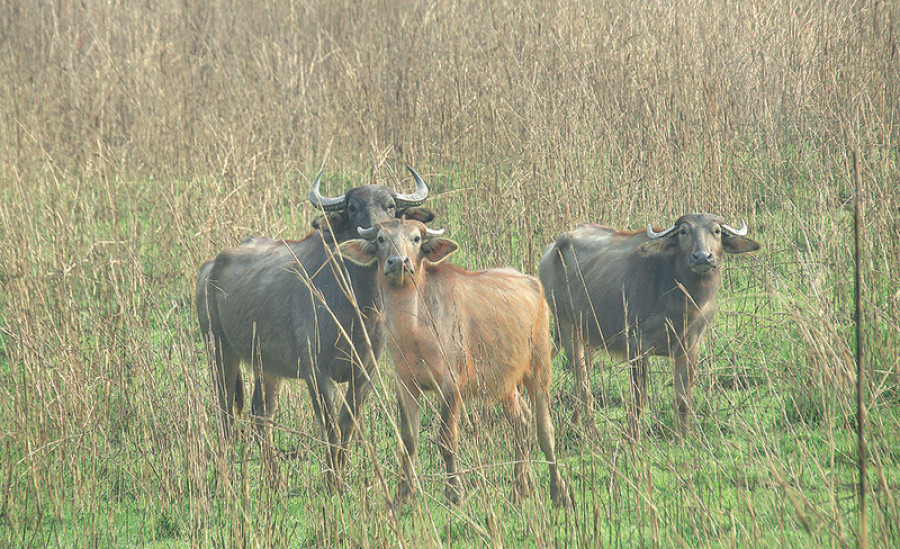National
Host of parasitic diseases detected among wild water buffaloes in CNP
Five of the 15 wild water buffaloes that were translocated to Chitwan National Park earlier this year have died and the others are suffering from various parasitic diseases.
Shiva Puri
Five of the 15 wild water buffaloes that were translocated to Chitwan National Park earlier this year have died and the others are suffering from various parasitic diseases.
According to the park officials, roundworm and tapeworm infections are common among wild water buffaloes inside CNP.
Their conditions have gone from bad to worse after the destructive flood that hit the park territory in August, inundating their habitat, polluting water and destroying grassland.
Nurendra Aryal, information officer at CNP, said the remaining 10 wild water buffaloes were growing frail and infirm by the day.
“The devastation caused by floods to the wildlife species was extensive and the wild water buffaloes were no exception.
Vast swathes of the park’s territory were inundated by the flood which limited the habitable area of animals and polluted the water sources,” Aryal said.
When a team from the Department of National Parks and Wildlife Conservation, which included veterinarians, visited CNP recently to see what had caused the translocated wild water buffaloes ill, it found a host of parasitic diseases affecting the protected bovine species.
Ramchandra Kandel, chief conservation officer at CNP, said laboratory test of dung samples confirmed that the wild water buffaloes were infected by various parasites, likely transmitted through contaminated food and water in the wake of the August flood.
“We are currently running a rehabilitation programme for these ailing animals. We are feeding them nutritious diet so that they can regain their health,” Kandel said.
The wild water buffaloes inside CNP were brought from Lalitpur Central Zoo and Koshi Tappu Wildlife Reserve by the Department of National Parks and Wildlife Conservations with a hope that their translocation would improve their overall survival rate and boost their numbers.
Wild water buffalo is listed as an endangered animal in the International Union for Conservation of Nature’s Red List.
It is estimated that there are 3,400 wild water buffaloes in Nepal, India, Sri Lanka, Cambodia, Myanmar, Thailand and Bhutan.




 9.83°C Kathmandu
9.83°C Kathmandu














